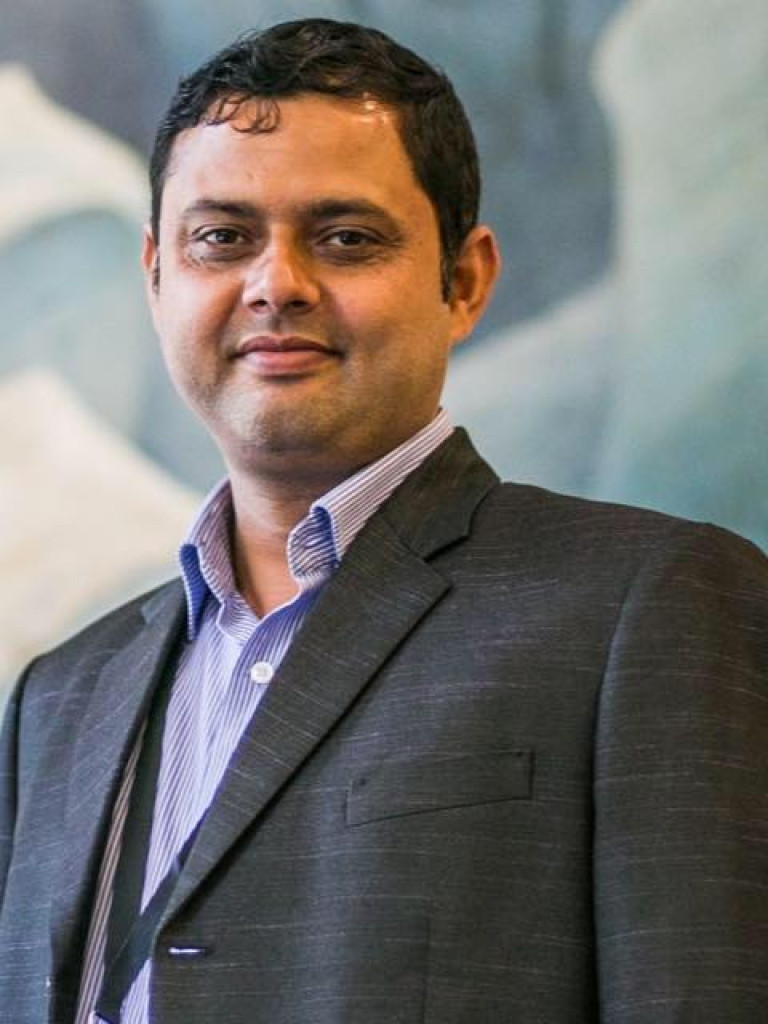
RAJAN POKHREL
- 2018
- Press Fellow
Rajan Pokhrel is a Nepali journalist with over 15 years of working experiences in print and electronic media. He is the vice president cum programme co-ordinator of the Nepal Forum of Science Journalists, a member association of the World Federation of Science Journalists. He has been working with the country’s largest selling English Daily – The Himalayan Times – as the Deputy Editor since 2003. Besides his interest in mountaineering and aviation safety issues, he exclusively writes on science, technology and environment. He is the Edward R Murrow fellow under the International Visitors Leadership Programme hosted by the Department of State in 2008. 1. Why did you choose to become a science journalist? When I joined the daily newspaper newroom in 2003, I hadn’t even heard of the existence of science journalism. But, frequent conversations with the visiting tourists and researchers led me to find the science element in my news stories. That’s how ‘science chooses me‘. As Nepal is a home to numerous mountains including Mt Everest, I also thought it‘s more important for me to find the linkages between science and mountains as did I cover either mountain expeditions or the impact of climate change on mountain communities. When I started covering science in The Himalayan Times, the country’s largest selling English daily newspaper, I got several opportunities to catch-up with astronauts, scientists and scholars. In 2014, I along with a friend took an initiative to bring together a few journalists who have interest in science and environment issues. Ultimately, the same unity was reshaped as an umbrella body of the working science journalists in Nepal, namely – Nepal Forum of Science Jouirnalists. 2. What role do science and science communication play in your country? Science and technology are gradually becoming an increasing part of our daily lives in Nepal where nearly two-thirds of country‘s population depend on agriculture for jobs. Science communiction is still lagging behind. If we create a conducive environment for communication between scientific community and the general public, that will certainly result into creating curiosity and interest among the populace about science. Journalists have a vital role to play for the same. 3. What are the main challenges of science journalism in your country? Science journalism is an emerging issue in Nepal. There are a very few journalists who have been working with different media to cover science. There is an urgent need to review and address the existing gap between the media and science in Nepal. Lack of trained science journalists is one of the main obstacles to this field. Investment in science journalism or science communication remains minimal. Sadly, science is yet to considered as a specific beat in most of the Nepali newsrooms. I realize that the communication barrier between scientists and public is a tremendous opportunity for journalists like me to serve in science journalism field. 4. Where do you see the big societal transformations in the future? What scientific research/discovery will change our world? In my understanding, space research, artificial intelligence and technological revolution can help bring in the big societal transformations in the years to come. Besides, we can’t ignore the changing mountain landscapes in which more scientists and researchers pay their attention to conduct extensive researches in the high Himalayas. 5. What book, movie or song has radically changed your perspective? And why? I have read many books but the Alchemist, a novel written by Paulo Coelho, has changed my perspectives. It talks about the essence of life; a gift guided by a passion and a dream. The novel made me realise that life is all about a journey and not the destination.